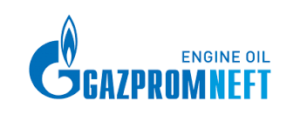Gazprom Neft, an energy firm, and S7 Airlines, a Russian airline, have made a statement announcing their success in developing and implementing a system for refueling based on the Blockchain technology.
Benefits Of The Newly Developed System
The statement which was made on Gazprom’s website states that the newly developed system AFSC (Aviation Fuel Smart Contract) will drastically improve the way refueling is done in the aviation sector.
According to the statement the system has successfully made the process of automating the planning and accounting procedures relating to fuel supplies in the aviation sector possible. It has also made the settlement of the process more efficient and less time-consuming.
According to the statement, the newly developed AFSC system will make the process of settling payment easier by allowing aviation companies and airlines to make instant payments for the fuel at the time and location of refuel. Through this option, the system has effectively removed the process of prepaying and banks guaranteeing the payment. It has also removed the risk of financial issues arising between the aviation companies and the supplier of the fuel.
How The System Works
Similar to any other smart contract, this aviation based smart contract will enable the one purchasing the product, in this case, the aviation company, to key in the details of the prospective transaction, i.e. the future refueling of an S7 owned aircraft. The information keyed into the system includes the volume of the fuel to be purchased as well as the price, the system then will then use the information to allocate the duty to a tanker within the airport.
In the case of instantaneous purchase of the fuel, the designated pilot will request for the preferred volume of fuel in the system. The system then sends the request for the corresponding amount to be made by the airline’s bank, to which the bank replies to almost instantaneously, and the refueling process begins while the payment for the requested volume of fuel is made at that same time.
Upon completion of the transaction, both the airline company and the fuel supplier receive communication to that effect alongside the relevant documents.
Reactions To The System
 Anatoly Cherner, who is Gazprom Neft’s Logistics’ deputy CEO, said that through developing and implementing such systems Gazprom Neft has seen the benefits and importance of having a platform that not only manages the logistics of the sale of its oil products but also processes these sales. He added that through these projects and partnering with other major companies will enable the company to attain higher levels of efficiency in its technology and operations.
Anatoly Cherner, who is Gazprom Neft’s Logistics’ deputy CEO, said that through developing and implementing such systems Gazprom Neft has seen the benefits and importance of having a platform that not only manages the logistics of the sale of its oil products but also processes these sales. He added that through these projects and partnering with other major companies will enable the company to attain higher levels of efficiency in its technology and operations.
The initial test of this system is said to have been done at Tolmachevo airport, where Gazprom Neft has a refueling site, just before a scheduled S7 flight.
Vladimir Egorov, the CEO of Gazpromneft-Aero, has stated that Gazpromneft-Aero is dedicated to aligning its operations with the internationally set standards and the implementation of the best international practices in improving the efficiency in Russia’s aviation refueling. He added that through this the collaboration has come up with a solution that will affect the aviation industry as a whole.







